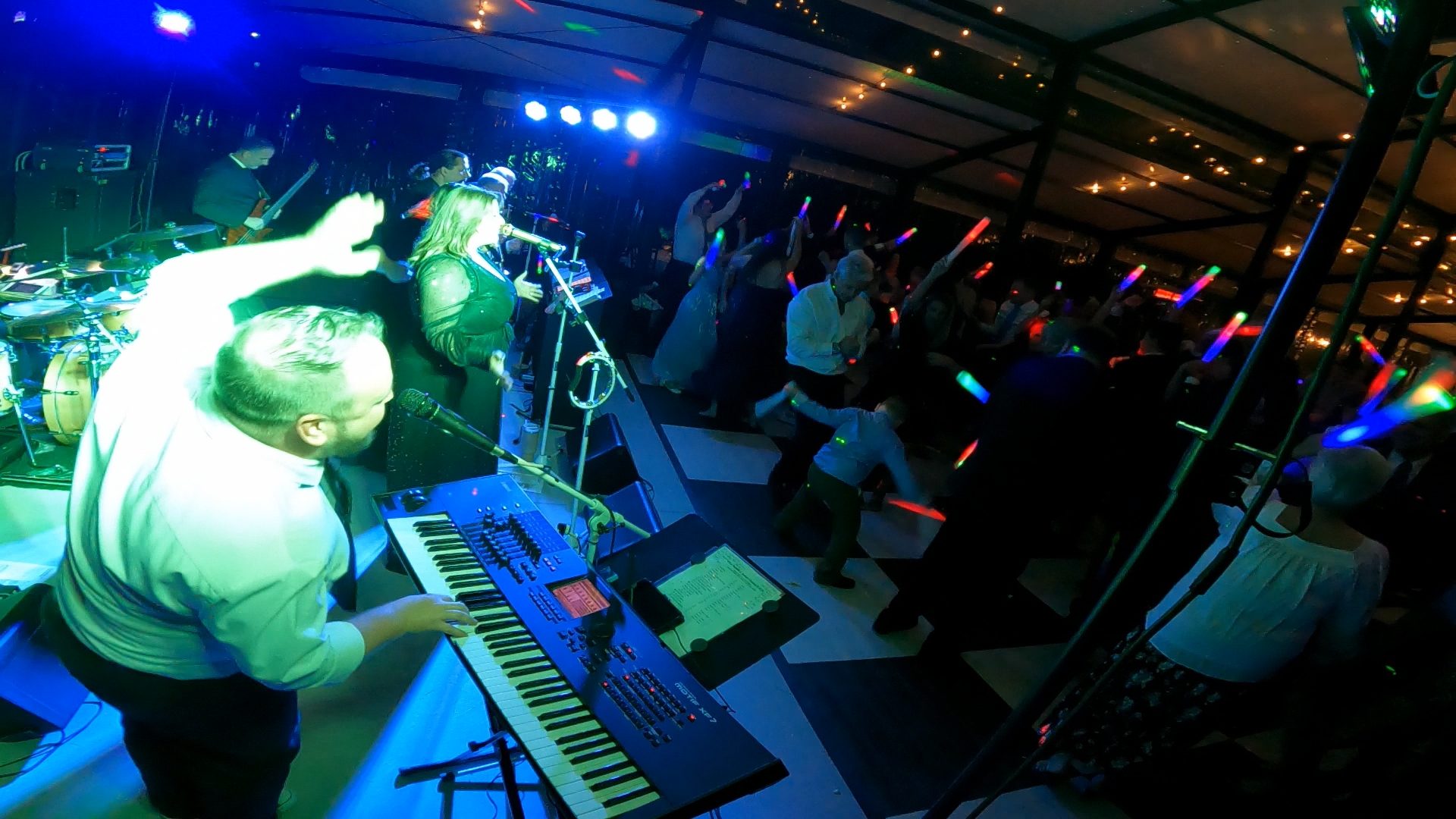Good Public Speaking = Great Performance 📣

When you think of performing, you probably picture yourself singing your heart out or playing an amazing solo on your instrument with a crowd of fans cheering you on. But often, what happens when musicians are performing live is the opposite. Nobody cares. You're stuck in a corner playing beautiful music with only a handful of people paying attention. I've seen it with newcomers and seasoned veterans alike.
Here’s the thing—being a great musician isn’t just about your music. It’s also about how you make a real connection with your audience, and that’s where good public speaking comes in.

Music Alone Isn’t Enough
Think about some of the best live performers out there. Sure, they sound amazing, but they also talk to the audience in a way that makes the whole experience feel personal. My favorite example of this was when I saw Paul McCartney in concert. Paul had this ability to make everyone feel like we were sitting in a living room together while he told some truly unbelievable stories (like when he jammed with Jimi Hendrix and Eric Clapton backstage). It was just amazing.
Whether it’s hyping up your crowd, introducing a song, sharing a quick story, or even making yourself vulnerable, the way you speak on stage can make or break your performance. If you just play song after song with no real interaction, people might enjoy the music, but they won’t feel connected to you. And that connection is what turns a decent gig into an unforgettable experience.
It Helps You Control the Energy in the Room
Ever been to a show where the vibe just felt… off? Maybe the crowd was quiet, distracted, or not really feeling it. A good performer knows how to read the room and use their words to change the energy. A well-placed joke, an enthusiastic intro, or even just a confident "How’s everyone doing tonight?" can set the tone and get people engaged. The more comfortable you are speaking to an audience, the more you can guide the experience instead of letting it control you.

Speaking Well = Looking Confident
Even if you’re nervous (which is totally normal - it still happens to me too), knowing how to speak well on stage makes you look like you know exactly what you’re doing. Confidence is contagious—if the audience sees that you’re in control and having fun, they’re way more likely to relax and enjoy the show. On the flip side, if you mumble, avoid eye contact, rush through your words, or a common one I see, speaking without purpose, it can make things feel awkward, even if your music is solidly in the pocket and sounding amazing.
It Helps You Tell Your Story (And Sell Yourself)
Your audience isn’t just there for the music—they’re there for you. They want to know who you are, what your songs mean, and why they should care. It doesn’t mean you need to give a TED Talk in between every song, but a little storytelling can go a long way. If you’re releasing new music, playing a special show, or even just covering a song you love, knowing how to talk about it in an engaging way makes people feel more invested in you as an artist.
One of the singers I work with likes to share stories about his personal connections to songs. The first song he and his wife danced to at their wedding, the songs that remind him of his children. These kinds of stories help him connect emotionally with the fans in the crowd ... and that creates a more engaged audience!

How to Get Better at It
If public speaking freaks you out, don’t worry—you’re not alone. The good news? It’s a skill, and just like playing an instrument, you can improve with practice. Here are a few easy ways to get better:
-
Talk to yourself (yes, really). Try saying a few sentences about your songs out loud while practicing. The more you do it, the less weird it will feel. Try watching yourself in a mirror while you do it.
-
Record yourself. Watch it back and notice things like your tone, speed, and body language. Small tweaks can make a big difference.
-
Engage with smaller groups first. If talking to a big crowd feels overwhelming, start by working on your stage presence at open mics, band rehearsals, or even just chatting with a group of friends.
-
Plan your moments. You don’t have to script everything, but knowing when you’re going to talk and what you’re going to say can help you feel more in control.
The Bottom Line
Being a great performer isn’t just about what you play—it’s also about what you say. Knowing how to speak confidently on stage can make your shows more engaging, help you connect with your audience, and even boost your career. So if you’ve been avoiding the mic when it’s not for singing, maybe it’s time to start practicing. Your future self (and your audience) will thank you!
Be the Performer You Are Meant to Be
Join The Performer Perspective
When you signup, we'll be sending you weekly emails with additional free content.



